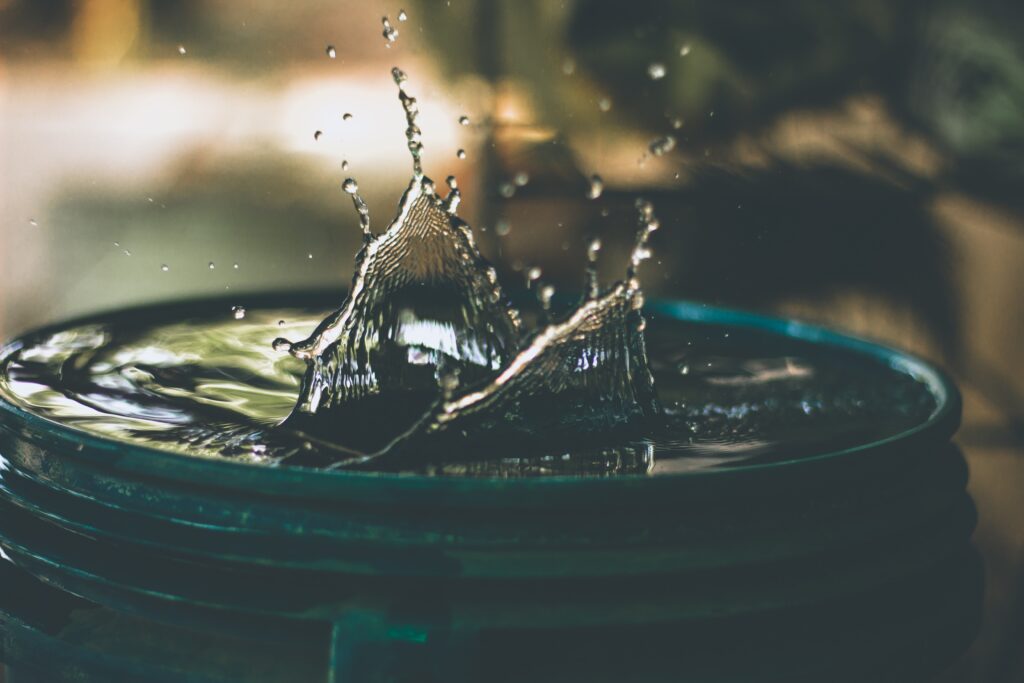Today, we want to share some important information about the choices you have when it comes to water heaters. Specifically, we want to discuss the differences between gas and electric water heaters. We believe that knowing the key facts can help you make an informed decision for your home.
When comparing gas and electric water heaters, there are a few things you should consider. Gas water heaters tend to have a faster recovery time, meaning they can heat up water more quickly. On the other hand, electric water heaters are often more energy-efficient, leading to potential cost savings in the long run. Additionally, gas water heaters may require natural gas or propane connections, while electric water heaters rely solely on electricity. Understanding these distinctions can help you determine which option is best suited for your needs. So, whether you’re considering a new water heater or simply want to be informed about your current one, we hope this knowledge will be useful in your decision-making process.
Gas Vs. Electric Water Heaters: What You Need To Know
When it comes to choosing a water heater for your home, there are many factors to consider. Two popular options on the market are gas and electric water heaters. Each type has its own advantages and disadvantages, so it’s important to understand the various aspects before making a decision. In this article, we will compare gas and electric water heaters in terms of cost, energy efficiency, installation, performance, maintenance, environmental impact, durability, venting, space requirements, and availability and access.



This image is property of images.unsplash.com.
Cost
Initial Cost
The initial cost of a water heater is an important factor to consider. Gas water heaters tend to have a higher upfront cost compared to electric water heaters. This is primarily due to the additional components required for gas models, such as gas lines and venting systems. However, it’s important to consider the long-term savings associated with a gas water heater, which we will discuss in more detail later.
Electric water heaters, on the other hand, generally have a lower initial cost. They are relatively straightforward to install and do not require additional components like gas lines or venting systems. This makes them a more budget-friendly option for homeowners on a tight budget.
Operating Cost
While the initial cost is important, it’s equally crucial to consider the ongoing operating cost of a water heater. In terms of operating cost, gas water heaters are typically more cost-effective in the long run. Gas is generally cheaper than electricity, so heating water using gas is more efficient and cost-efficient. Gas water heaters also have a faster recovery rate, meaning they can heat water more quickly, resulting in less time for the unit to run and consume energy.
On the other hand, electric water heaters have a higher operating cost since electricity is generally more expensive than gas. Electric models may take longer to heat water and have a slower recovery rate, which means they may need to run for longer periods of time, resulting in higher electricity bills.
Energy Efficiency
Gas Water Heaters
Gas water heaters are known for their energy efficiency. They are designed to heat water quickly and efficiently, resulting in less energy consumption. Gas models also have a high energy factor (EF), which measures the overall efficiency of the unit. The higher the EF, the more energy-efficient the water heater is.
Electric Water Heaters
Electric water heaters are also energy-efficient, although not as much as gas models. They are designed to heat water using electric resistance elements. However, electric resistance heating is not as efficient as gas combustion heating. Despite this, some electric water heaters utilize advanced technologies such as heat pump technology, which can significantly improve their energy efficiency.
Installation
Gas Water Heaters
Installing a gas water heater can be more complex compared to electric models. It requires a professional to install gas lines and proper venting systems to ensure the safe operation of the unit. Additionally, gas water heaters need to be properly vented to the outdoors to remove toxic combustion byproducts. This can add to the installation cost and may require structural modifications to your home.
Electric Water Heaters
Electric water heaters are relatively easy to install. They don’t require gas lines or venting systems, making the installation process simpler and more straightforward. With an electric water heater, all that is needed is a proper electrical connection and a dedicated circuit.
Performance
Recovery Rate
The recovery rate of a water heater refers to how quickly it can heat a tank full of water once it has been depleted. Gas water heaters generally have a faster recovery rate compared to electric models. This means that a gas water heater can heat water more quickly, allowing for a constant supply of hot water even during periods of high demand. Electric water heaters, while still capable of providing hot water, may take longer to recover and may not be able to keep up with high demand as efficiently as gas models.
Hot Water Capacity
Both gas and electric water heaters come in various sizes to accommodate different household needs. The hot water capacity of a water heater refers to the amount of water it can heat at a time. Gas water heaters often have larger tanks, which means they can store and heat a larger volume of water. This can be advantageous for households with high hot water demand, such as large families. Electric water heaters, although they may have smaller tanks, can still provide an ample supply of hot water for smaller households or those with lower hot water demand.
Consistency of Temperature
Gas water heaters are known for their ability to provide a consistent temperature throughout hot water usage. They have a faster response time and can quickly adjust the water temperature to maintain a constant level of hot water. Electric water heaters, while still capable of providing a consistent temperature, may have slight variations as the elements heat the water. However, advanced electric water heaters with temperature control features can help minimize temperature fluctuations.



This image is property of images.unsplash.com.
Maintenance
Gas Water Heaters
Gas water heaters require regular maintenance to ensure safe and efficient operation. This includes inspecting the gas lines, checking the pilot light, and ensuring proper venting. Additionally, gas water heaters should be flushed annually to remove sediment buildup, which can affect performance and efficiency. It is recommended to have a professional plumber perform regular maintenance on gas water heaters to ensure safety and optimal functionality.
Electric Water Heaters
Electric water heaters generally require less maintenance compared to gas models. There are no gas lines or pilot lights to worry about, and the venting requirements are less complex. However, like gas water heaters, electric models should be flushed annually to remove sediment and maintain optimal performance. Regular inspection of the heating elements and thermostat is also recommended.
Environmental Impact
Gas Water Heaters
Gas water heaters have a relatively higher environmental impact compared to electric models. The combustion process produces carbon dioxide (CO2) emissions, contributing to greenhouse gas emissions and climate change. However, advancements in gas water heater technology have led to the development of more energy-efficient units with lower emissions. Additionally, some gas models can utilize renewable natural gas (RNG) as a fuel source, further reducing their environmental impact.
Electric Water Heaters
Electric water heaters have a lower environmental impact compared to gas models since they do not produce direct emissions during operation. However, the environmental impact depends on the source of electricity generation. If the electricity is generated from fossil fuels, such as coal or natural gas, it can still contribute to greenhouse gas emissions. On the other hand, if the electricity is sourced from renewable energy, such as solar or wind power, electric water heaters can be considered a more environmentally friendly option.



This image is property of images.unsplash.com.
Durability
Gas Water Heaters
Gas water heaters are generally known for their durability. They have a longer lifespan compared to electric models, with an average lifespan of 10-12 years. With proper maintenance and care, a gas water heater can provide reliable hot water for many years.
Electric Water Heaters
Electric water heaters also have a decent lifespan, typically lasting around 8-10 years. While they may not last as long as gas models, proper maintenance can help extend their lifespan and ensure optimal performance.
Venting
Gas Water Heaters
Venting is an essential aspect of gas water heaters. They require proper venting to ensure the safe removal of combustion byproducts, such as carbon monoxide. Venting can be achieved through a chimney, power venting, or direct venting. The type of venting required depends on the specific gas water heater and the layout of your home.
Electric Water Heaters
Electric water heaters do not require venting since there are no combustion byproducts to be removed. This eliminates the need for complicated venting systems, simplifying the installation process and reducing potential safety hazards.
Space Requirements
Gas Water Heaters
Gas water heaters generally have larger tanks and may require more space for installation. They also need clearance around the unit for ventilation and maintenance purposes. Adequate space should be considered when choosing a gas water heater, especially if space is limited in your home.
Electric Water Heaters
Electric water heaters are often more compact compared to gas models. They can be installed in smaller spaces and require less clearance around the unit. This makes them a suitable option for homes with limited space or for those looking to maximize their available space.
Availability and Access
Availability of Fuel
When choosing between a gas or electric water heater, the availability of fuel is an important consideration. In some areas, natural gas may not be readily available, making an electric water heater the only feasible option. On the other hand, if natural gas is readily available in your area, you may have more flexibility in choosing between a gas or electric water heater.
Accessibility to Electricity
Electric water heaters require a reliable electrical connection. If you live in an area with frequent power outages or unreliable electricity supply, a gas water heater may be a more practical choice. Gas water heaters can provide hot water even during power outages, ensuring you have a constant supply of hot water.
In conclusion, the choice between a gas and electric water heater ultimately depends on your specific needs and circumstances. Gas water heaters tend to have a higher initial cost but can provide long-term savings in terms of operating cost and efficiency. Electric water heaters, on the other hand, are more budget-friendly upfront and can be a suitable option for homes with limited space or accessibility issues. Consider factors such as cost, energy efficiency, installation requirements, performance, maintenance, environmental impact, durability, venting, space requirements, and availability when making your decision. By understanding the differences between gas and electric water heaters, you can make an informed choice that suits your needs and ensures a constant supply of hot water for your home.
